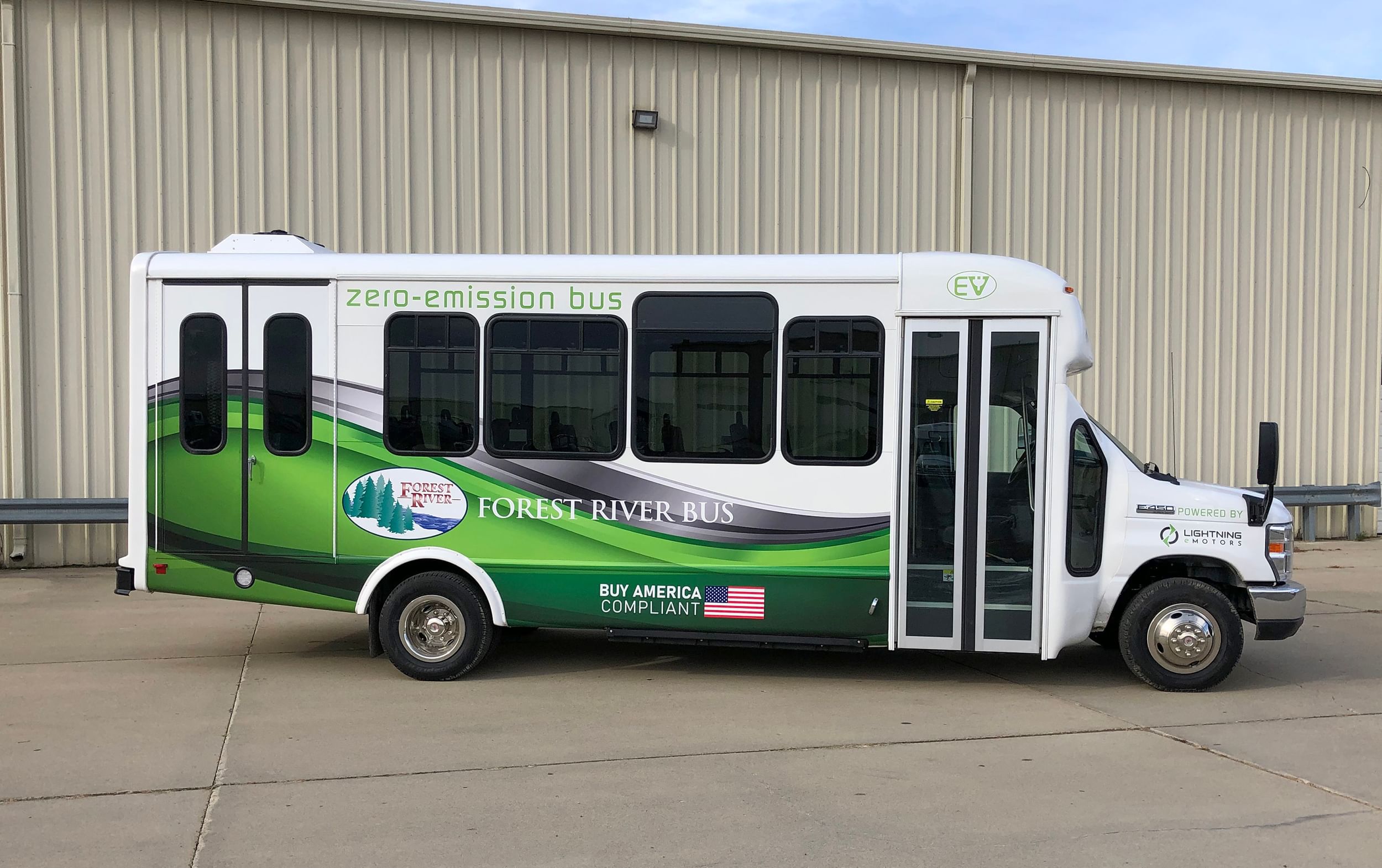
Lightning eMotors, a leading provider of medium-duty and specialty commercial electric vehicles for fleets, today announced it has expanded its partnership with Forest River to offer a factory-certified all-electric repower program for shuttle buses and passenger vans. Forest River is a Berkshire Hathaway Company that manufactures shuttle buses, recreational vehicles, cargo trailers, utility trailers and pontoon boats, and is the dominant manufacturer of shuttle buses across US and Canada.
Repowering gas and diesel-powered commercial vehicles has been common practice for many years since the chassis and body often outlast the powertrains, while repowering vehicles with electric powertrains remains a largely untapped opportunity for many fleet operators.
There are currently more than 50,000 Forest River shuttle buses and passenger vans across the U.S. and Canada that are eligible for this program. Many of those buses have been highly customized with wheel-chair lifts, roof-top air conditioners and other equipment. Repowering these vehicles not only reduces emissions, it also preserves the prior investment and extends the life of the vehicle all while reducing costs for the customer.
“There have been attempts by smaller and early-stage EV technology companies to repower gasoline and diesel buses to electric, but fleets have been hesitant to invest in these third-party, unauthorized and unproven solutions,” Lightning eMotors CEO Tim Reeser said. “With the Forest River and Lightning eMotors’ factory-certified repower program fleets can be assured they will get a proven and reliable solution backed by two established companies that will stand behind the offering and support the vehicles through their second life.”
The Forest River factory-certified powertrains and installation will be backed by a five-year, 100,000-mile warranty. Additionally, Lightning Energy will provide Forest River dealers and customers with customized charging and microgrid energy solutions, including Lightning’s Mobile Battery Vehicle Charging solutions to ensure customers have the necessary infrastructure to support fast ramp-up of their zero-emission fleets.
This expanded agreement comes after Lightning and Forest River announced in 2021 an $850 million, multi-year strategic partnership to build up to 7,500 zero-emission Class 4 and Class 5 buses.
“We expect that our new repower program with Lightning will be welcomed by our dealers because it is being introduced as the commercial bus industry continues to grapple with a production shortage caused by supply chain issues in the broader automotive market,” said Forest River Bus president David Wright. “Lightning’s zero-emission powertrain provides our customers with an updated powertrain that is not only more sustainable and more efficient than the gasoline engine that is being replaced, but also provides the latest safety and driver technology on a platform that is serviceable and highly customized for their needs.”
“This agreement is further demonstration of David Wright’s deep commitment to meeting Forest River’s customer demands for leading-edge, sustainable transportation,” continued Reeser. “I am proud to be partnered with a company with such focus and determination, and willingness to find solutions for their customers.”
Lightning eMotors has been repowering gasoline and diesel vehicles since 2009, and its vehicles have exceeded more than 1,250,000 all-electric miles as customer and market demand continues to increase.
“Commercial vehicles have been repowered since their inception—as most are highly specialized and their chassis and bodies outlast their powertrains. Even electric commercial vehicles will need to be repowered in the future,” said Kash Sethi, chief revenue officer for Lightning eMotors. “This certified repower program is not only cost-effective but provides a reliable and sustainable solution for many shuttle buses and passenger vans on the road today, providing the vehicles with years of additional life while reducing emissions in our communities.”


